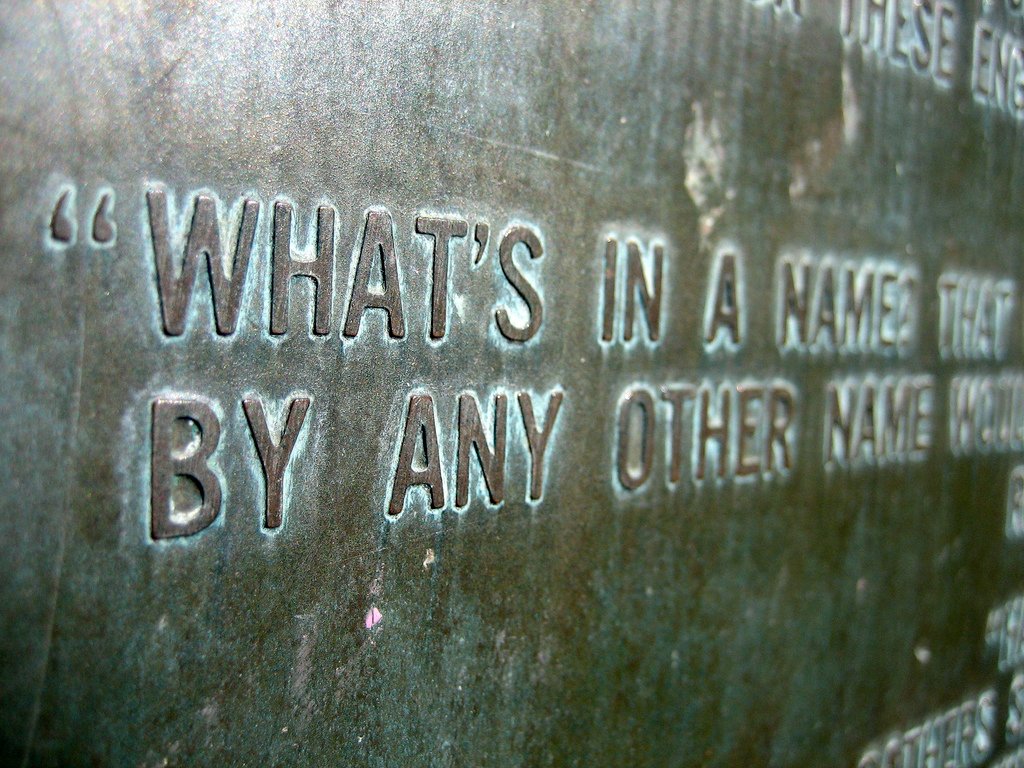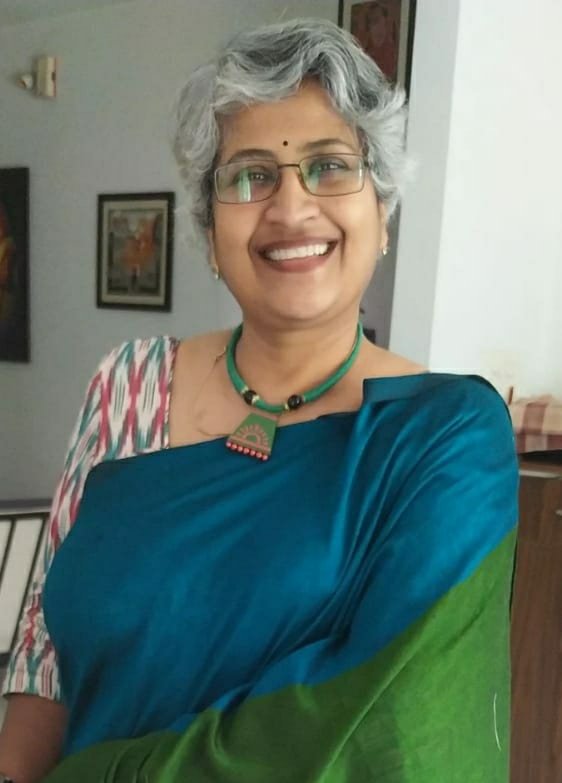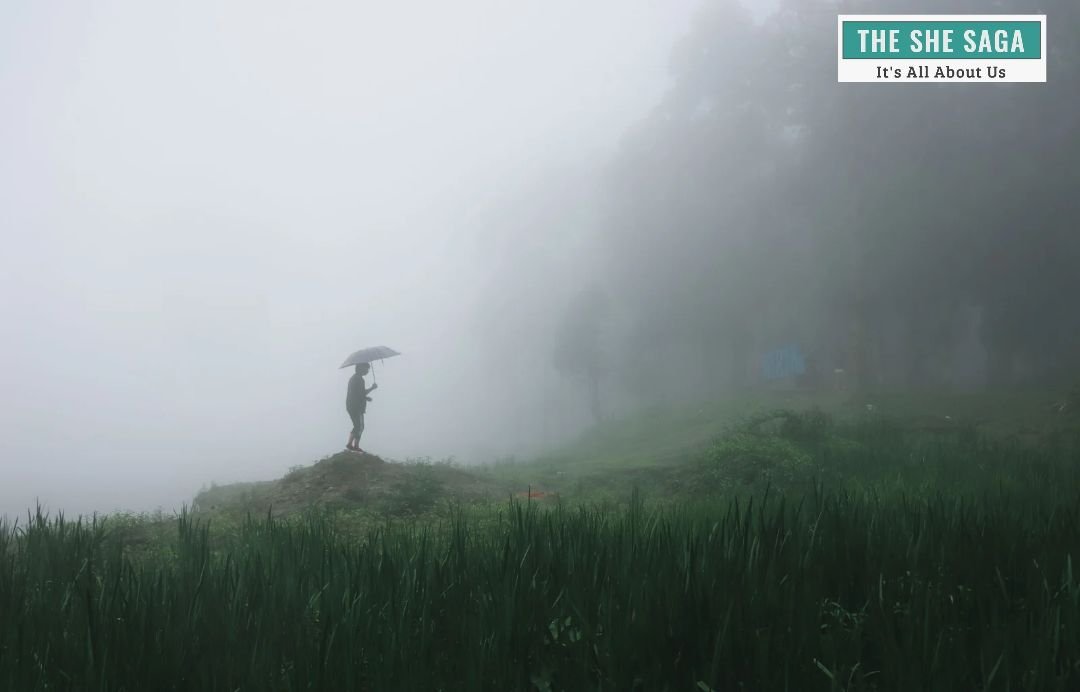Shakespeare had written this iconic saying in his play Romeo and Juliet: “A rose by any other name would smell as sweet.” Well, it turns out that a name means a lot if you are a Bengali. Shakespeare, not having a drop of Bengali blood, failed to appreciate our obsession with cultural identity, which fiercely surfaces while naming a child.
Namesakes in Every Class
It was my first day at Jadavpur University. I had queued up to register my name at the Arts Faculty building with little idea what fate had in store for me. As I was about to put down my name, I casually scanned the names listed above. There it was: with growing dismay, I noted that there was another Anindita in my class.
I squirmed at the loopy handwriting in which she had scrawled ‘Anindita Basu’ and took comfort from the fact that at least our last names were not the same. Throughout my school life and even in dance or art classes, whatever my pursuit, there was always another Anindita around. There is even a bus stop called ‘Anindita’ in Salt Lake.
Imagine my consternation when conductors of private buses started bellowing “Anindita, Anindita…” as soon as the bus approached the designated stop. But there was more to come. As I passed the pen to the next person, I realized she too had scribbled ‘Anindita’, this time followed by ‘Banerjee’. Coincidentally, the next one also signed up as Anindita Pal.
Three namesakes in the class, and amidst all the giggling at the silly coincidence at our expense, I thought I could strangle my dead grandmother for choosing this name. I wonder, along with the thousands of Aninditas who populate this planet, why this name was so popular among Bengali parents who chose it for their daughters, the majority of whom were born during the seventies.

Namesakes In Family
According to my mother, I was destined (or doomed) to be named Anindita. Apparently, my paternal grandmother had watched a film starring Shubendu Chatterjee and Mousumi Chatterjee called Anindita and liked it enough to name me after the heroine.
She had named her earlier granddaughter (only a year older than me) ‘Nandita’ and thought Anindita would be perfect for the next one. It did not matter that we already had another Anindita in the family on my mother’s side. Ours was a typical matriarchal family, and despite the presence of my soft-spoken freedom fighter grandfather, everyone knew who wore the pants in the family.
My mother had worked up her courage and approached the matriarch with the suggestion for a change of name since her elder sister’s granddaughter had also been named Anindita a few months ago. “Ask your sister to change her granddaughter’s name. I would never change mine,” she had thundered (almost in Lalita Pawar style). My mother promptly lost all her courage and the chance to rename her daughter.
Apart from that distant niece, two of my sisters-in-law (married to cousins) are Aninditas, and there are scores of Aninditas among friends, neighbors, casual acquaintances, and so on.
Named After A Film
So, I was stuck with Anindita just because of the silly film, and I wondered if it was the same with all those who shared my name. And it was not even a masterpiece (what would I have given to be named Subarnarekha or Komalgandhar after Ritwik Ghatak’s iconic films) but a typical tear-jerker, potboiler where the heroine refuses to leave her ill husband for her handsome lover boy.
The movie is available on YouTube, but I simply could not gather enough interest to sit through it.

Anyway, having four Aninditas around did not prove to be much of a trouble, thanks to our jugaad-wired brains. After a few days of confusion, everything simply fell into place.
Anindita Basu, who had been around for a longer time, retained her name. While Anindita Banerjee, quite a tomboyish character, promptly started responding to the bureaucratic-sounding sobriquet of ‘Banerjee’ without any qualms, Anindita Pal had already been rechristened as ‘Lappie’ (Lap being the anagram of Pal) by her school friends. We continued to call her so.
I acquired a pet name, ‘Annie’, and the best part was that Banerjee, Lappie, and I turned out to be great friends during our university days. Since attendance registers or roll calls were a non-existent custom in JU, we were saved from the mortification of having a long list of Aninditas called out in every class. Consequently, we almost forgave my grandmother for her Himalayan blunder.
Uncommon Names
I had always resented my name, frankly because it sounded plebeian. My misfortune appeared to be far more aggravated than it really was because my close friend, Pushya, had such an uncommon, even exotic name chosen by a thoughtful father with a creative bent of mind.
He named his daughter after the star of the month of Poush, in which she was born. However, in school or college, a new teacher would invariably stumble upon her name during roll call. Then either he or she would tentatively pronounce one syllable at a time, as “Pu-sshh– yaaa” or brazenly decide it was a spelling mistake and call out “Pushpa.”
Pushya would raise her hand, get on her feet, and painstakingly correct them, a task she genuinely hated every single time. At that age, we were more eager to blend into the crowd than stand out, especially when we had just gotten into the habit of bunking classes.
Calcutta University, in its customary arrogance, often changed the spellings of names to what they deemed to be the right one, not sparing any feelings for the poor examinee who thought he, at least, knew how to spell his own name in the admit card and answer sheets, even if the university was really grouchy and miserly when it came to doling out marks.
When Pushya’s marksheet arrived, we found some smart clerk had decided she had misspelled her name and corrected it to ‘Pushpa’. It was easier to file an affidavit in court and change her name to Pushpa than to run from pillar to post to get her name corrected in the records of a 150-year-old university. And despite their mistake, the university did not give her a typed marksheet like the rest of us, and she had to remain content with a handwritten one.
No wonder, when the time came to name her newborn son, Pushya chose an utterly common and even plain ‘Pratik’ to avoid any future mistakes by the smart, know-it-all clerk who seems to hover in every institution.
Quirky Names
Deciding upon a name is a serious job, and I cannot help but recall an incident involving a past chief minister who had the honor of naming a newborn calf born through artificial insemination. There were titters all around when the veteran, who prided himself on being a cerebral, well-read, cultured man, chose the name ‘Dhabali’ borrowing from Tagore’s texts, a clear misnomer as the calf turned out to be chestnut brown!
I have come across all kinds of parents, mostly fathers, confronted with the task of naming their children. Some were indifferent like mine, happy that someone else had done the needful, or thoughtful and creative like Pushya’s father, though it had boomeranged to an extent. There were also forgetful ones like an uncle who forgot the child’s name when he took her to school for admission and blurted out the first thing that came to his mind.
But it is the quirky ones who can really cause lifelong misery for their children. When my brother-in-law was born (he is nine years younger than my husband, Indranil), everybody declared that his name should rhyme with the firstborn. My mother-in-law, a sane post-graduate in Sanskrit, had thought of Kaustav (both are gemstones; forgive the maternal pride).
However, her more flamboyant husband decided to amalgamate the ‘Nil’ from Indranil with ‘Mac’ of John McEnroe, his favorite tennis player, and named him ‘Macneil’. “Is he a foreigner? Is he a Christian?” people ask with unabated curiosity, right from teachers, conservative parents of friends, colleagues to even his in-laws. Such queries are a lifelong cause of embarrassment, though he has become quite sporting about it after many years of practice.

So, when one asks what’s in a name, I think there’s a lot more than what Mr. Shakespeare had given credit to. Courtesy his immortal words, a rose by any other name would smell as sweet. I, for one, can vouch that it does matter since I share my name with every fifth girl born during the seventies or with the millions of Subratas, Debashises, and Kaushiks who walk this earth and bear the same cross as I do.

By Anindita Chowdhury
Anindita Chowdhury is a special correspondent of the English daily, The Statesman. She is based in Hyderabad. Apart from reporting, she writes short stories and essays with special focus on history, particularly the social and cultural aspects of the bygone era. She can be contacted at aninditasmail@gmail.com.

















Facebook Comments